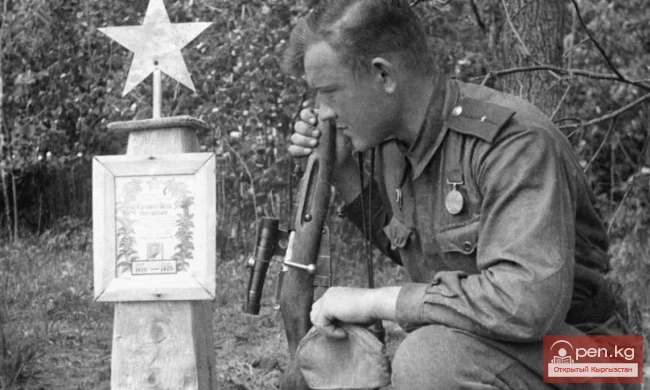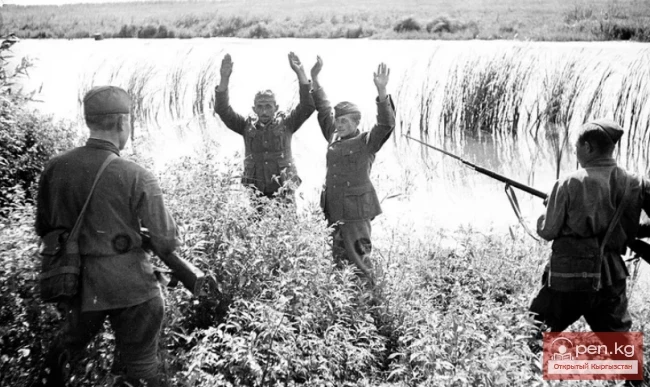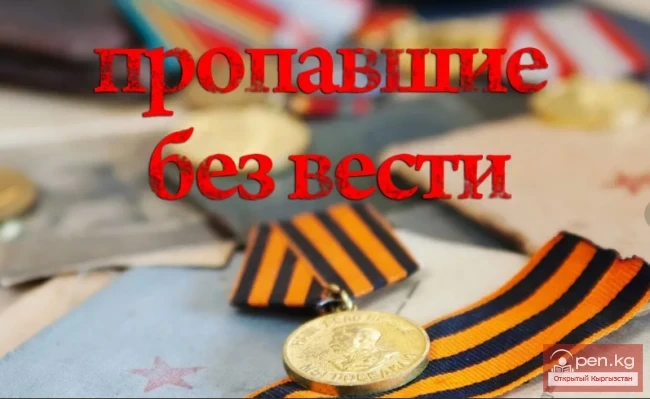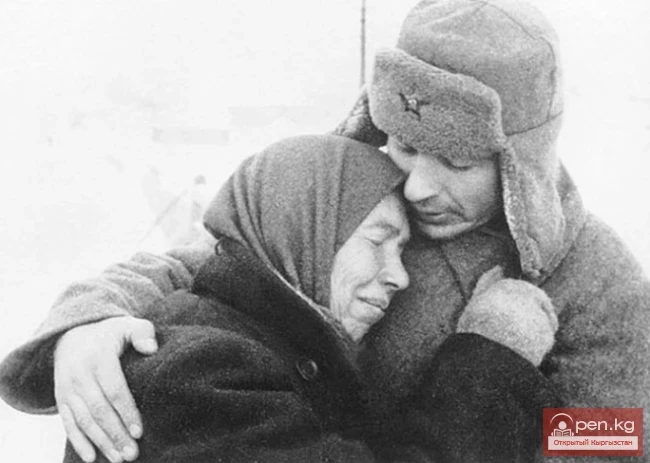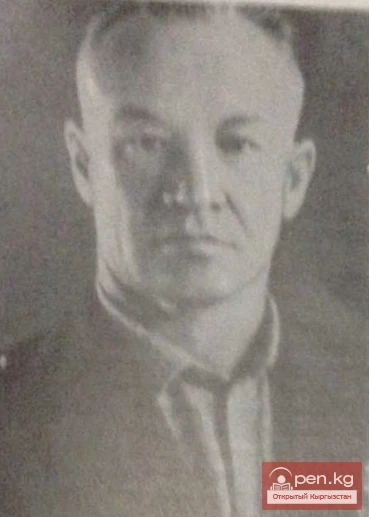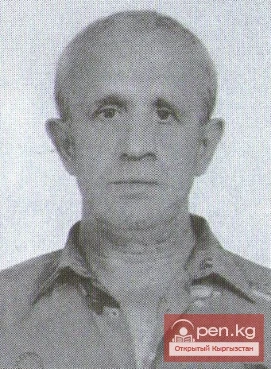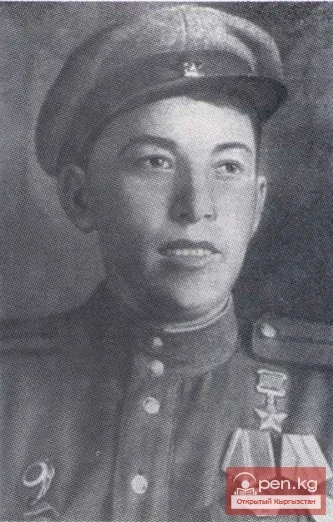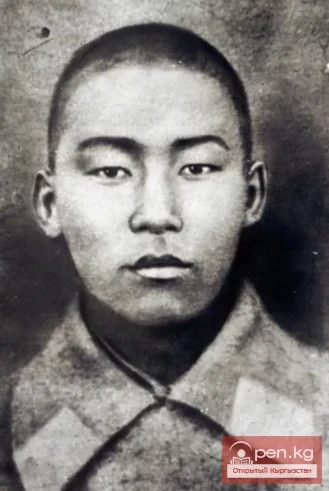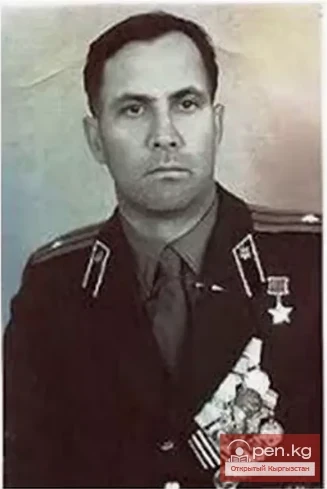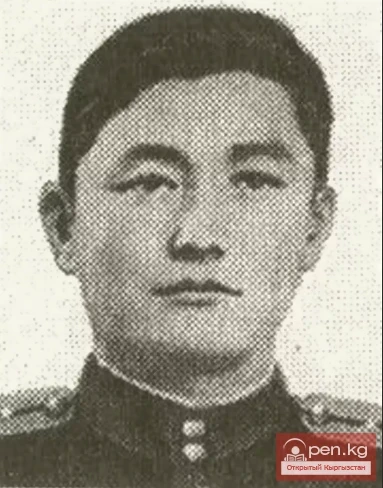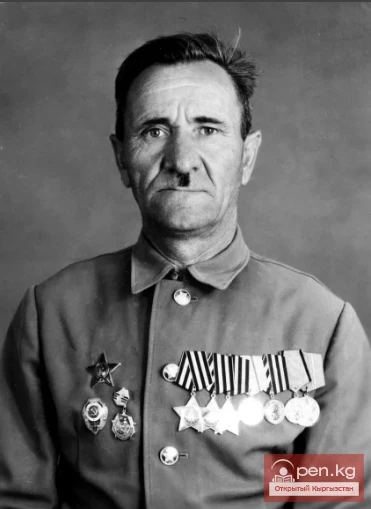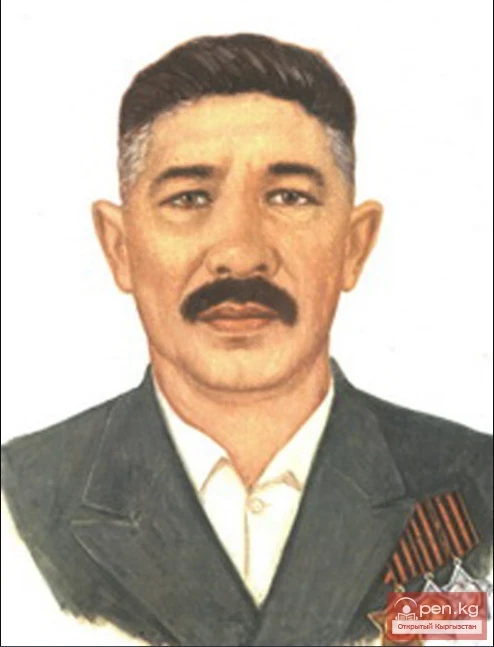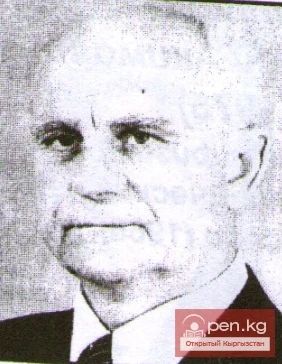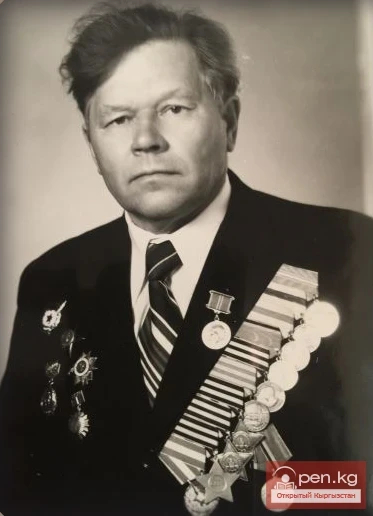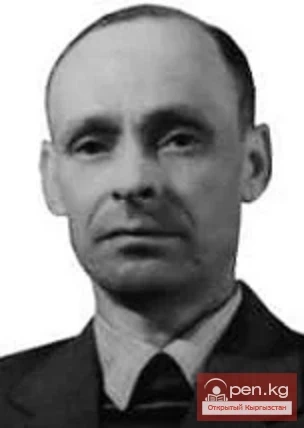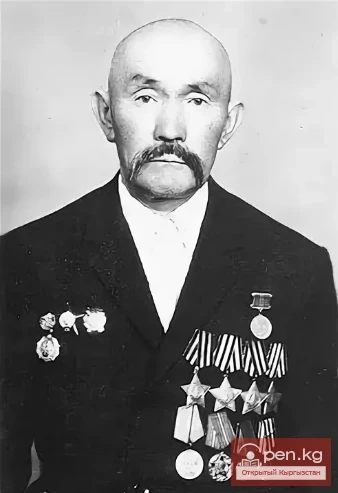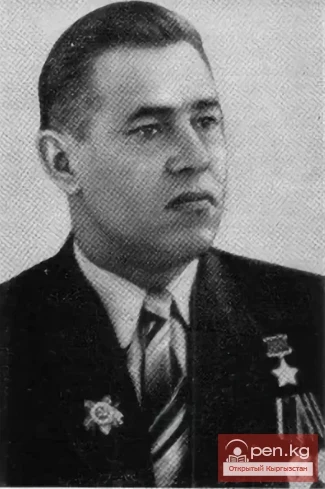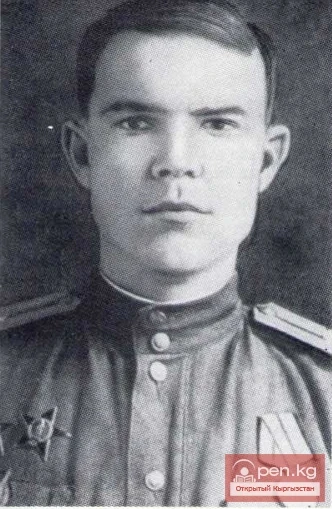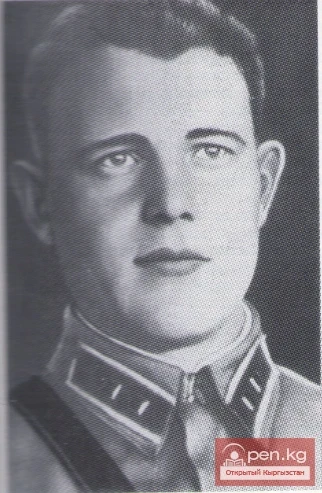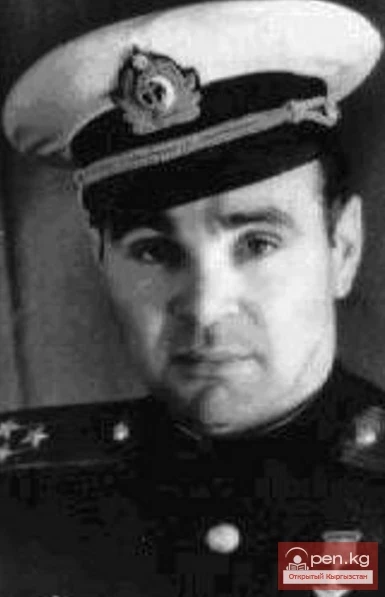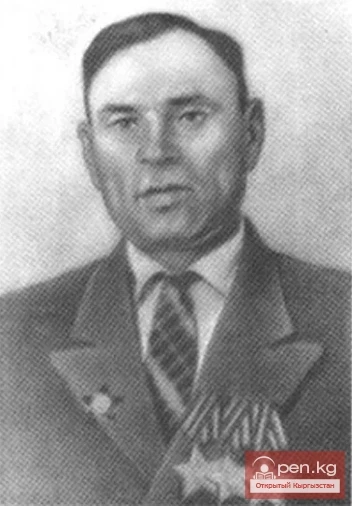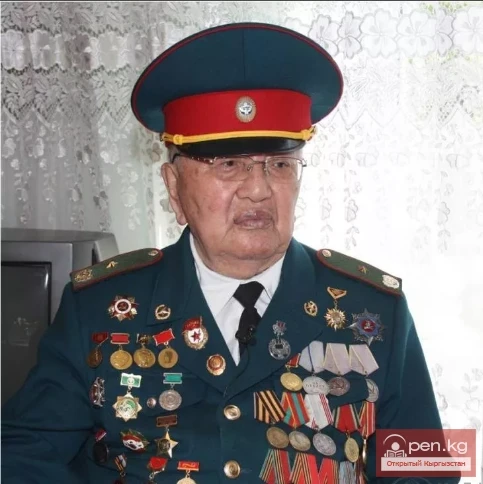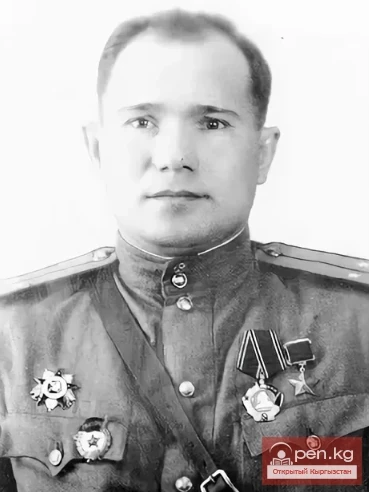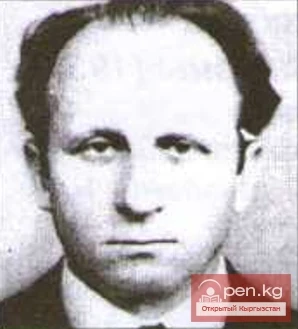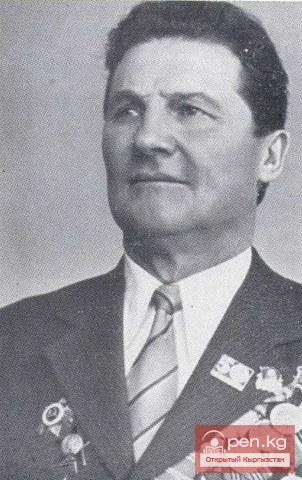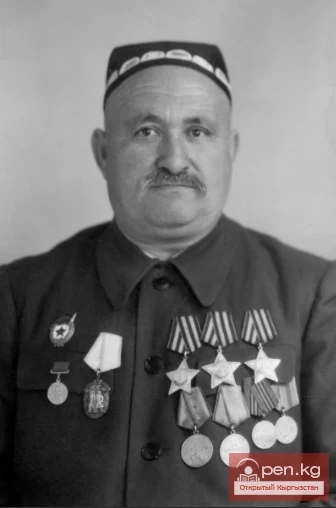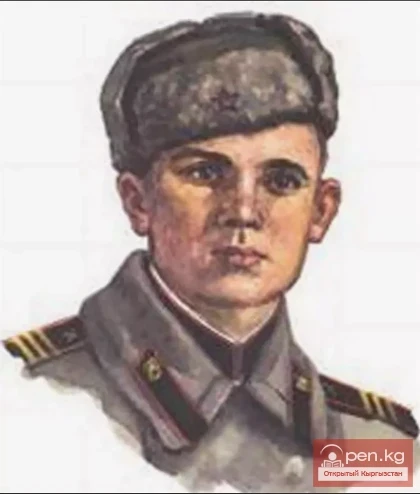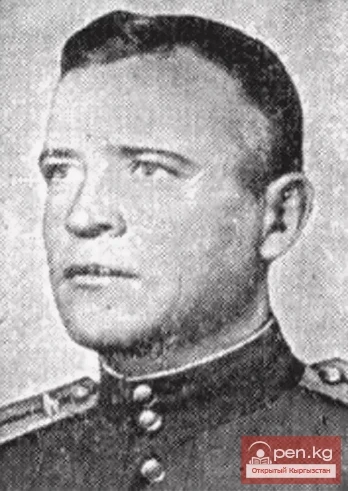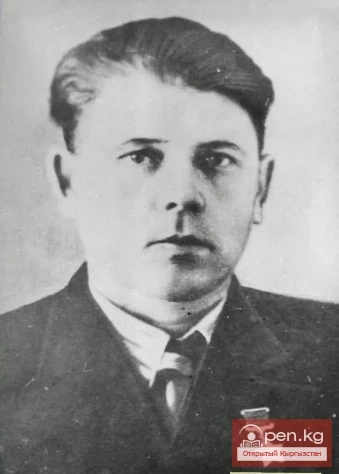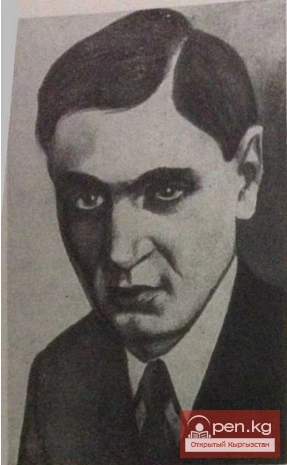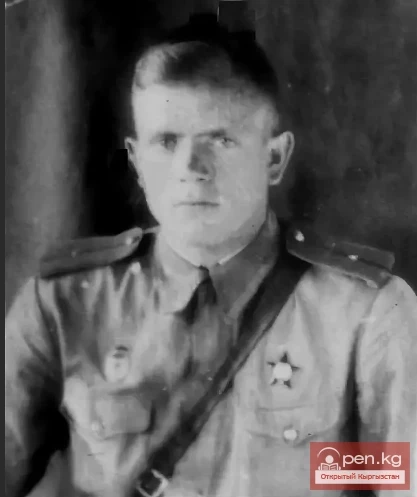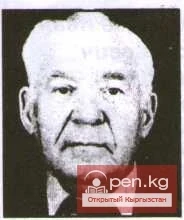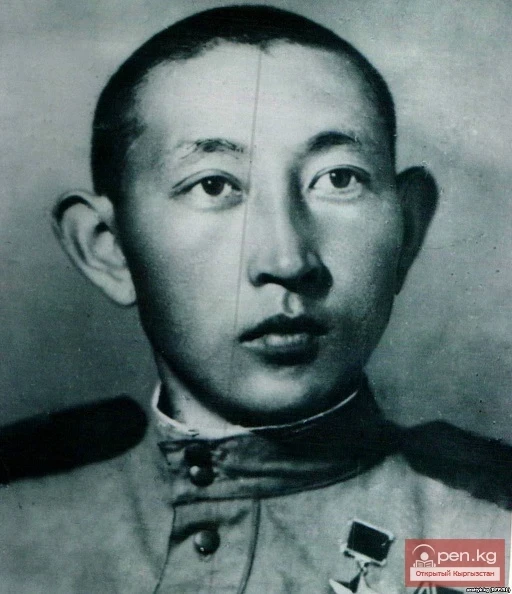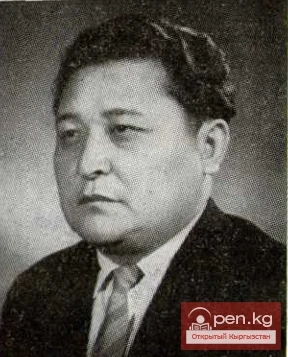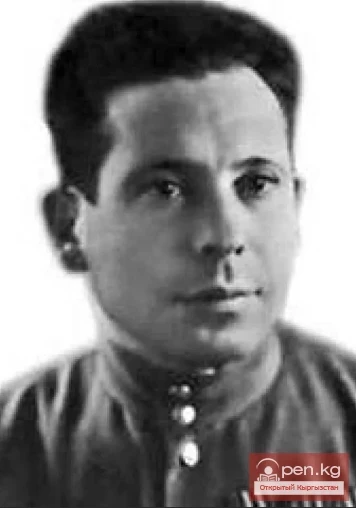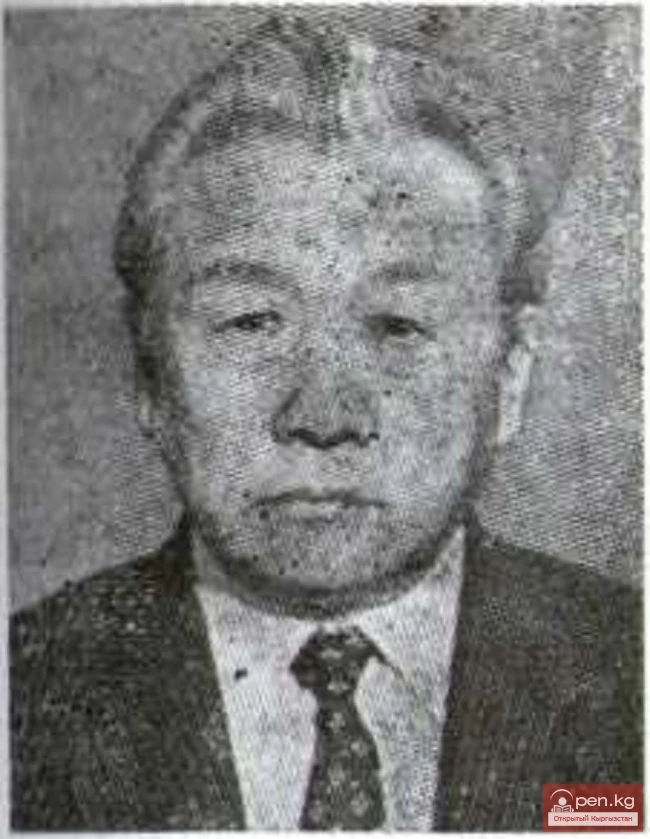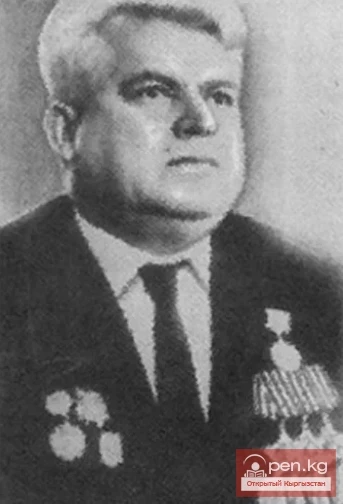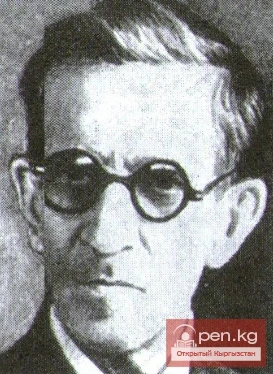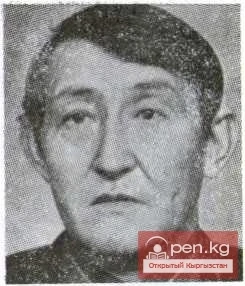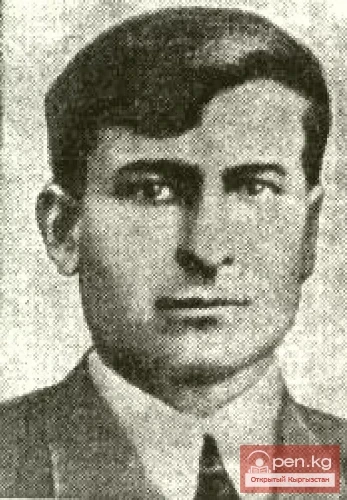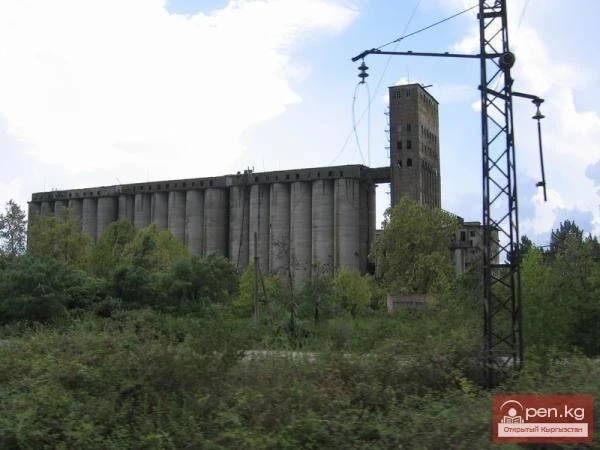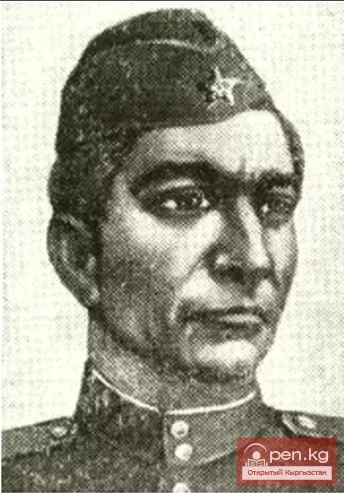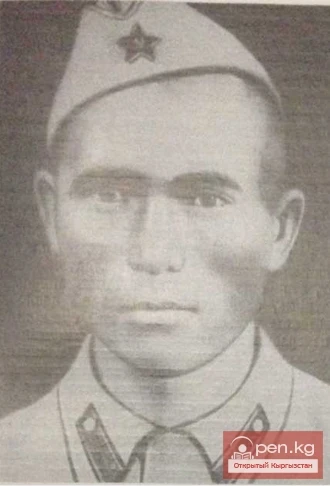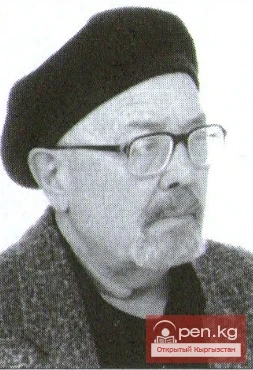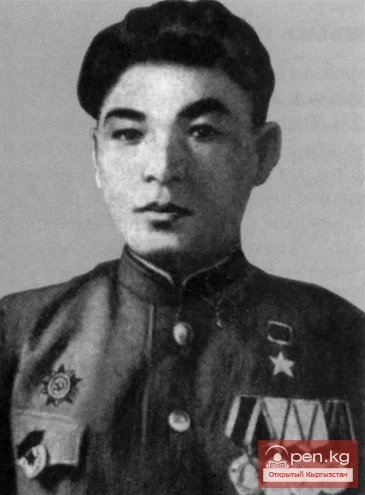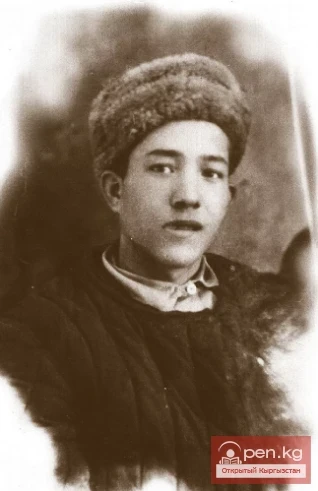
Hero of the Soviet Union Ivan Semyonovich Ponomarev
Ivan Semyonovich Ponomarev was born in 1922 in the village of Krivo-Khandala in the Taseyevsky District of the Krasnoyarsk Krai into a peasant family. He was Russian. After finishing seven years of school, he worked on a collective farm. In 1941, the Ponomarev family moved to the village of Sosnovka in the Kalinin District of the Kyrgyz SSR. Here, I. Ponomarev worked on the construction of the Big Chui Canal. In May 1941, he was drafted into the ranks of the Soviet Army. He served as a squad commander in a rifle regiment, holding the rank of sergeant major.
From the first days of the Great Patriotic War, he was continuously engaged in battles. In the summer of 1943, he fought on the Voronezh Front. In battles against the Nazi occupiers, he demonstrated courage, bravery, and resourcefulness.
On February 22, 1944, for exemplary performance of combat missions during the crossing of the Dnieper River, and for his displayed courage and bravery, Ivan Semyonovich Ponomarev was posthumously awarded the title of Hero of the Soviet Union.
SON OF A RED PARTISAN
"The generation of the killed" — this is how the writer Vasily Bykov referred to those who went to war at the age of twenty. For them, still very young, time was stingy with the period of maturation, yet it demanded the valor and resilience of real men.
They became adults beyond their years...
Ivan Semyonovich Ponomarev is from this generation. Only a few of his peers, who donned soldier's overcoats in '41 like him, fervently fired all kinds of weapons into the blue May sky of 1945, proclaiming to the world the Great Victory. The rest paid for this bright and joyful day with their lives.
Before me is a photograph of Ivan Semyonovich Ponomarev, yellowed with time. It was taken shortly before the war began, which means the photo is already twice as old as he is. I closely examine his youthful face, trying to find heroic traits in it. No, I do not find any: he has an ordinary appearance. And there is nothing remarkable in his clothing: a padded jacket — such were worn by many in that pre-war time, and a round kubanka hat cocked to one side.
Perhaps the gaze?.. Yes, it is indeed — open, brave, even somewhat daring, revealing a restless person for whom even a moment of peace, necessary for a normal photo shoot, is an unusual state.
Later, while studying the documents about the feat of Guards Sergeant Major, squad commander of the 233rd Guards Rifle Regiment of the 81st Guards Rifle Division Ivan Semyonovich Ponomarev, I realized that I was not mistaken.
He was indeed a brave, initiative warrior, someone you could rely on, as they say. Since 1942, being continuously in battles with the German fascist occupiers, Ponomarev, according to the command, demonstrated courage and bravery, was an untiring, energetic worker of war. As part of the 81st Guards Rifle Division, mainly composed of Siberians and Far Easterners — battle-hardened guys — he fought near Voronezh and at the walls of Stalingrad, participated in the liberation of Ukraine, where, by the way, on September 9, 1943, he was awarded his first combat medal — the Medal "For Courage." This medal, featuring an image of a tank and a flying squadron of planes, is a special soldier's pride. It was rightly considered that the holder of the Medal "For Courage" had demonstrated outstanding bravery.
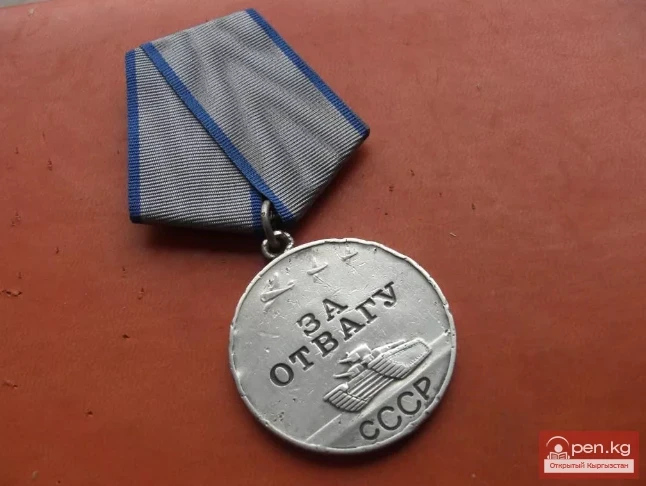
On September 25, 1943, the 233rd Guards Rifle Regiment reached the banks of the Dnieper after fierce fighting. It was necessary to cross the mighty river, which the Nazi command intended to use as a favorable strategic line to hinder the rapid advance of our troops. Naturally, it was impossible to transfer the entire regiment at once. A continuous curtain of covering fire hung over the Dnieper. Sometimes, during the most intense shelling, it seemed that the river water was boiling from the continuous explosions of shells and mines.
A complex task lay ahead, and time for its resolution was short. The order was concise and strict: no respite for oneself or the enemy, forward and only forward!
On that same day, Guards Sergeant Major Ponomarev received orders to find means of crossing and to scout an island located in the middle of the river. The regiment commander, Major Titarenko, decided to use it to organize cover for the units and equipment crossing the water barrier. But first, it was necessary to ascertain whether there was an enemy ambush on this island.
With a group of five soldiers, Ponomarev set out to carry out this responsible task. From the wreckage of boards found on the riverbank and in the nearby settlements, they constructed something that vaguely resembled a raft.
As a precaution, they stuffed several ponchos with hay — not very reliable, but still a floating means, in case the raft failed. They set off. The island showed no signs of life, which was alarming. They moved through the water, observing all possible precautions, keeping their weapons ready.
They reached the shore and, barely pulling their raft out of the water, came under automatic fire. An enemy ambush revealed itself. The five brave soldiers immediately engaged in combat. A firefight ensued, ending in a complete victory for the paratroopers. 20 Nazis were killed, and 7 were taken prisoner. Leaving the disarmed fascists in the care of two soldiers, Ponomarev and the other Red Army soldiers moved toward the western shore of the island. From there, they could clearly see the enemy's defensive line through binoculars. After a thorough examination, an accurate map of the enemy's firing points and forces was compiled.
The group returned from the combat mission without losses. In addition to the prisoners and valuable intelligence, the soldiers brought back three boats as trophies.
After reporting the results of the reconnaissance to the command, Ponomarev immediately began preparing the advance detachment for the crossing, which began on the night of September 25 to 26. He himself was one of the first to set foot on the right bank of the Dnieper and, knowing well the locations of the enemy's firing points, skillfully suppressed several of them with grenades and fire from his automatic rifle. On the first day of fighting for the expansion of the bridgehead on the right bank of the Dnieper, Ponomarev incapacitated over 10 Nazis.
For exceptional valor and heroism, and for the bold actions and initiative displayed during the crossing of the Dnieper, Guards Sergeant Major Ivan Semyonovich Ponomarev was awarded the title of Hero of the Soviet Union by the decree of the Presidium of the Supreme Soviet of the USSR on February 22, 1944.
The Hero did not have time to receive the award — he was killed in '43...
For many years, more was known about the feat of I. S. Ponomarev than about the Hero himself. The fact is that, while filling out the documents for the highest award, an inattentive clerk mistakenly wrote the home address of a soldier listed next to Ponomarev. For this reason, the award was not handed over to the Hero's family. For the same reason, Ivan Semyonovich's relatives and close ones knew nothing about the fate of the brave warrior for a long time, believing him to be missing in action.
On March 11, 1965, during the preparations for the celebration of the 20th anniversary of the victory of the Soviet people over fascist Germany, the newspaper "Soviet Russia" published a list of participants in the Great Patriotic War who had not received high awards for various reasons. The Main Personnel Directorate of the Ministry of Defense of the USSR appealed to the readers of the newspaper for help in locating the Heroes, among whom was I. S. Ponomarev.
Many responded to the newspaper's publication at that time. Thus, twenty years later, it was possible to correct the inaccuracy made in the haste of wartime by the regimental clerk. The details of the Hero's biography also became known.
...Ivan Semyonovich Ponomarev was born in the village of Krivo-Khandala in the Taseyevsky District of the Krasnoyarsk Krai. His father was a Red partisan during the Civil War, fighting against the Kolchak forces. One day, white guards raided the village. A bloody reprisal was carried out against many activists. The family of Semyon Ponomarev miraculously managed to hide, but all the livestock was taken from their yard, their property was looted, and in a fit of rage, their house was burned down. Many hardships fell upon the shoulders of Yekaterina Alexeyevna Ponomareva, who was left homeless with small children. It is hard to say how they survived. When the father returned, things became a little easier. In 1941, the Ponomarev family — parents and seven children — moved to Kyrgyzstan.
As the Hero's sister Valentina recalls, the whole family saw Vanya off to the Red Army — father, mother, sisters Ilya, Roza, Zina, brothers Vladimir and Semyon. They said goodbye, and no one thought it would be forever; no one believed that the war, which soon began, could take away such a sociable, cheerful person. He had, Valentina recounts, a very beautiful handwriting. In one of his letters, Vanya mentioned that they even wanted to keep him as a clerk in the unit where he served in the Far East during the first year of the war, but he refused. He was eager to go to the front. Until 1966, we knew nothing about his fate, believing that he had gone missing in action at the end of 1943, when his last letter arrived.
Until the end of the war, the Ponomarev family lived in Sosnovka. Here, Yekaterina Alexeyevna buried her husband and the youngest daughter. Relatives, knowing how hard it was for her alone with the children, called her back to Siberia, but she refused, always waiting for news from her son, always hoping that he was alive and would write. How could she leave?
They left in 1946, and the mother instructed the neighbors: if there were any news, to inform her at the address: Krasnoyarsk Krai, Kansky District, village of Bukar. She still believed that her son, her Vanya, could not just disappear without a trace...
Another twenty years passed. And suddenly, Yekaterina Alexeyevna received a telegram — she was invited to the Kansky District Party Committee. Here, at a ceremonial meeting of the district committee and the city Council of People's Deputies, she was presented with a certificate from the Presidium of the Supreme Soviet of the USSR awarding Ivan Semyonovich Ponomarev the title of Hero of the Soviet Union. With tears in her eyes, the mother looked at the applauding hall, did not hear the applause, pressed the certificate to her chest, and it seemed to her that she was once again embracing her son, Vanya, as she had long ago.
V. ZAPOLSKY
